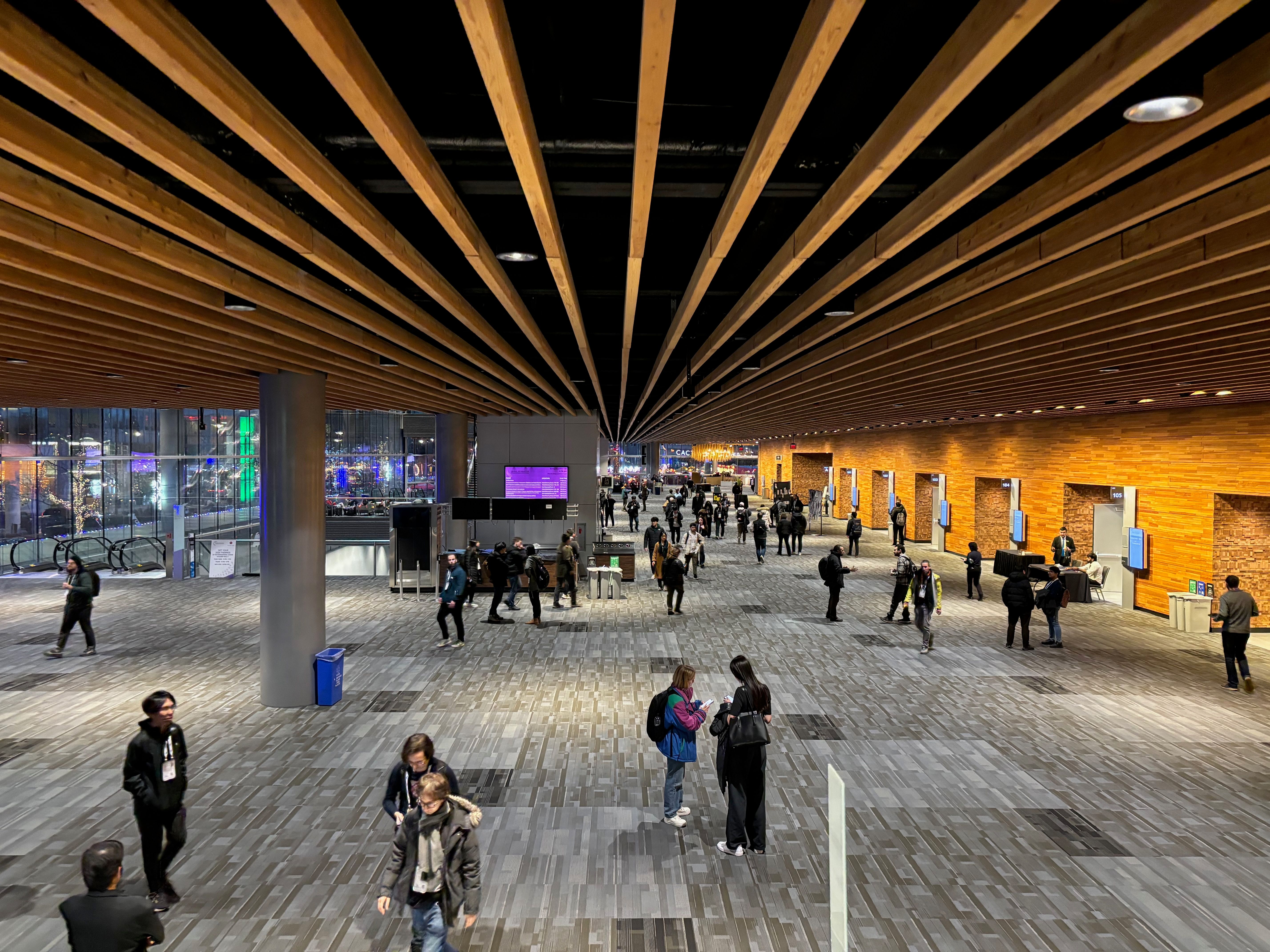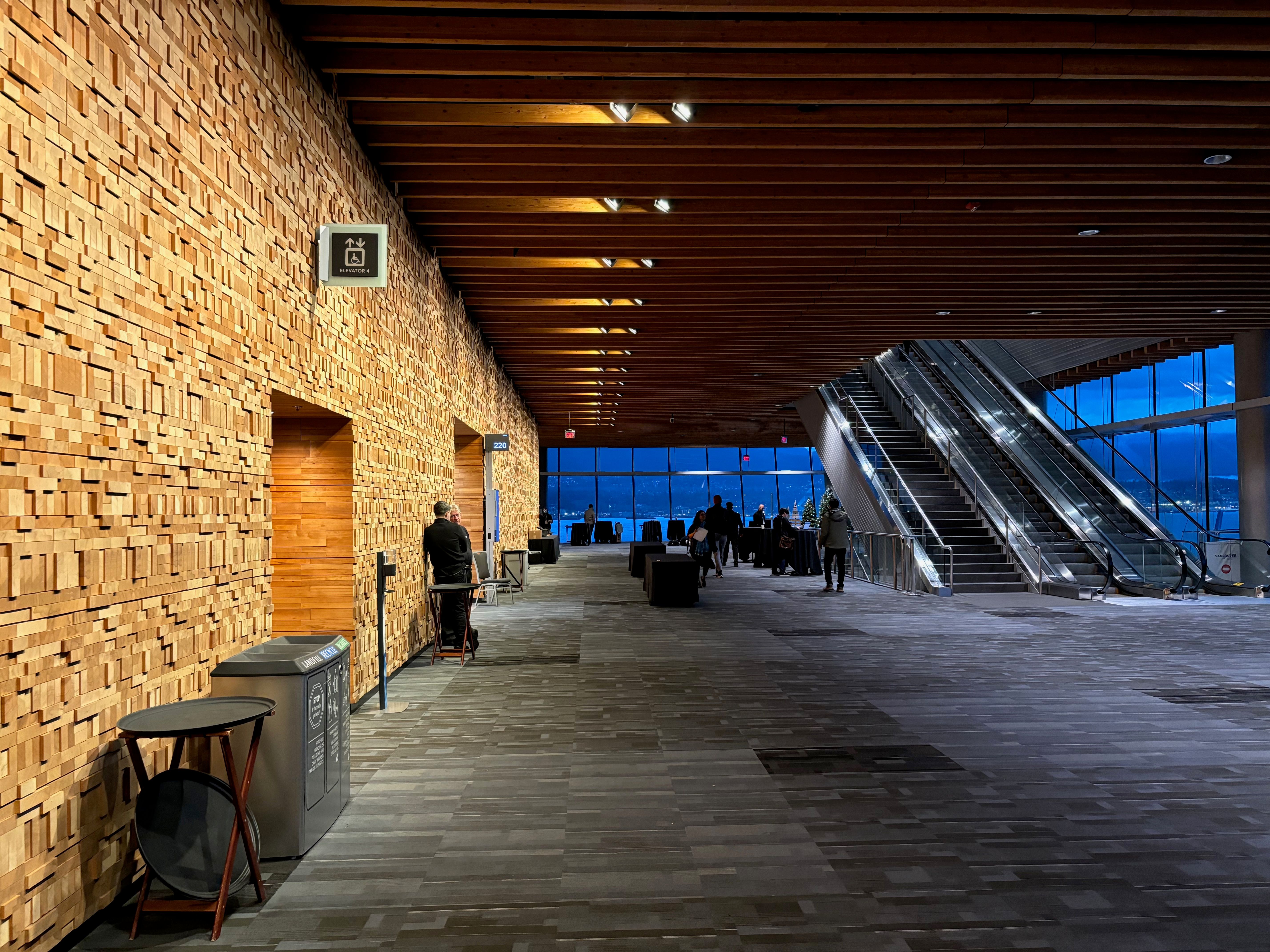Sunday’s workshops included Machine Learning for Systems, Time Series in the Age of Large Models, Interpretable AI, and Regulatable ML. The workshop programme is always varied, allowing researchers to self-organise into their niches and share more cutting-edge research than in the main conference.
First floor of the west building
In the Intrinsically Motivated Open-ended Learning workshop, sci-fi author Ted Chiang gave a talk titled “Speculations on educating artificial lifeforms”, which included some of his reasoning around the digital entities in his short story, “The Lifecycle of Software Objects”.
There were presentations from startups, too, laying out their plans and visions. Each of these startups is approaching AI in its own way.
David Ha of Tokyo-based Sakana AI presented at the Workshop on Foundation Model Interventions. Sakana is aiming to build nature-inspired AI, leveraging ideas like evolution and collective intelligence.
Zenna Tavares of NY/Boston-based Basis spoke at the System 2 Reasoning at Scale workshop, alongside Cornell’s Kevin Ellis. Basis’ three-year goal is to build “the first AI system truly capable of everyday science” through project MARA: Modeling, Abstraction, and Reasoning Agents.
Basis’ talk was followed by a presentation from François Chollet on the ARC Prize, a challenge for abstraction and reasoning, first set in 2019, that recently concluded its latest $1m prize round.
Chollet stated that he sees the ARC Prize as a tool for directing research interest more than a benchmark. He said he believes discrete program search solutions for ARC are still under-explored, and is confident that the community is on track to “solve” the prize very soon. When that happens, he will have another challenge ready.
For more detail, see the ARC Prize 2024 Technical Report.
Second floor of the west building
The conference wrapped up today, concluding with the second day of the 56 workshops and 16 competitions.
This is the last post in our daily NeurIPS 2024 coverage, to be followed by a highlights post.